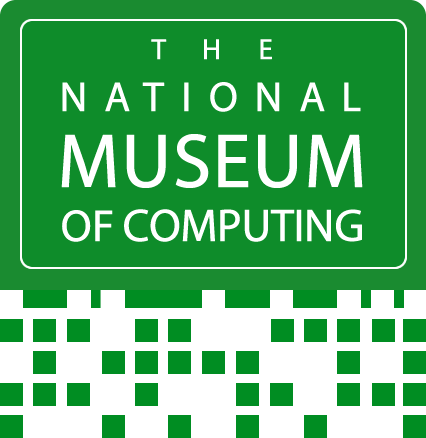Top computing experts become trustees
/Two computing experts with prestigious reputations in different fields of computing have become trustees of The National Museum of Computing (TNMOC) on Bletchley Park.
Computer scientist Dr Andrew Herbert and computing historian Professor Martin Campbell-Kelly have each had links with TNMOC for several years and now join the Trustees Board. They will bring contrasting and complementary skills to assist in the development of the Museum.
Welcoming the two new appointments, Chair of Trustees, Andy Clark said: “Professor Campbell-Kelly and Dr Herbert bring great knowledge, wisdom and experience to our Board and we are honoured that they have accepted our invitation to join us in developing what is already one of the world’s pre-eminent museums of computing. From their complementary perspectives of commerce and academia, each brings profound and invaluable insights of the development of our digital world over the past decades.”
The new trustees explained their fascination with computing and its rapidly developing history.
Professor Campbell-Kelly said, “As a computing student in the 1960s I had the good fortune to be in at the start of what became the second industrial revolution. After graduating, I completed a PhD in computer history and I have been a student of the whirlwind development of the information industries ever since.”
Dr Herbert said, "From the moment writing my first computer program in 1970 in FORTRAN II for an Elliott 903, I have been passionate about computing, enjoying a successful career in academic and industrial research creating new computer systems, theory, technology and applications. I look forward to helping TNMOC further develop its ability to preserve and explain to visitors the engineering, business and social significance of historical computers and systems in the development of modern information technology.”
Professor Martin Campbell-Kelly is a computer historian and an emeritus professor in the Department of Computer Science at the University of Warwick. He became fascinated by computing in the mid-1960s and enrolled for a computer science degree at the University of Manchester where he was taught by some of the pioneers of early computing. He has authored several books including histories of ICL, software, and international computing. He is a Fellow of the British Computer Society, a member of the ACM History Committee and a committee member of the BCS Computer Conservation Society. He also sits on a number of editorial boards including the IEEE Annals of the History of Computing.
Dr Andrew Herbert OBE, FREng graduated in computer science from the University of Leeds and gaining a PhD in Cambridge in the 1979. He then began work at the famed University of Cambridge Computer Laboratory under Sir Maurice Wilkes and Roger Needham. He went on to found two entrepreneurial computing companies and in 2001 joined Microsoft Research in Cambridge, becoming its managing director two years later. He is a Fellow of the Royal Academy of Engineering and of the BCS, and a Liveryman of the Worshipful Company of Information Technologists. He was awarded an OBE for his services to computing in 2010. Now retired, Dr Herbert leads the EDSAC reconstruction project at The National Museum of Computing and pursues other, often engineering-oriented, interests.
About The National Museum of Computing
The National Museum of Computing, located on Bletchley Park, is an independent charity housing the world's largest collection of functional historic computers, including the rebuilt Colossus, the world’s first electronic computer, and the WITCH, the world's oldest working digital computer. The Museum enables visitors to follow the development of computing from the ultra-secret pioneering efforts of the 1940s through the large systems and mainframes of the 1950s, 60s and 70s, and the rise of personal computing in the 1980s and beyond.
The Museum runs a highly successful Learning Programme for schools and colleges and promotes introductions to computer coding amongst young people, especially females, to inspire the next generation of computer scientists and engineers.
A pledge by an individual benefactor of £1 million if matched funding is found means that every pound or dollar donated to the Museum will count double. Funders of the Museum have included Bletchley Park Capital Partners, Bloomberg, CreateOnline, Ceravision, Fujitsu, InsightSoftware.com, Ocado Technology, FUZE, 4Links, Google UK, IBM, NPL, HP Labs, and BCS.
The whole Museum is currently open to the public from 12 noon on Thursdays, Saturdays and Sundays, spring and summer Bank Holidays and during school holidays. The Colossus and Tunny galleries are open daily. Public and private Guided Tours are available and bookable online – see the website or the iPhone app for details. Educational and corporate group visits are available by prior arrangement.
For more information about TNMOC and trustees, see www.tnmoc.org and follow @tnmoc on Twitter and The National Museum of Computing on Facebook and Google+. A TNMOC iPhone App is also available from the iPhone App Store.
Media Contact
Stephen Fleming, Palam Communications
01635 299116
s.fleming@palam.co.uk



